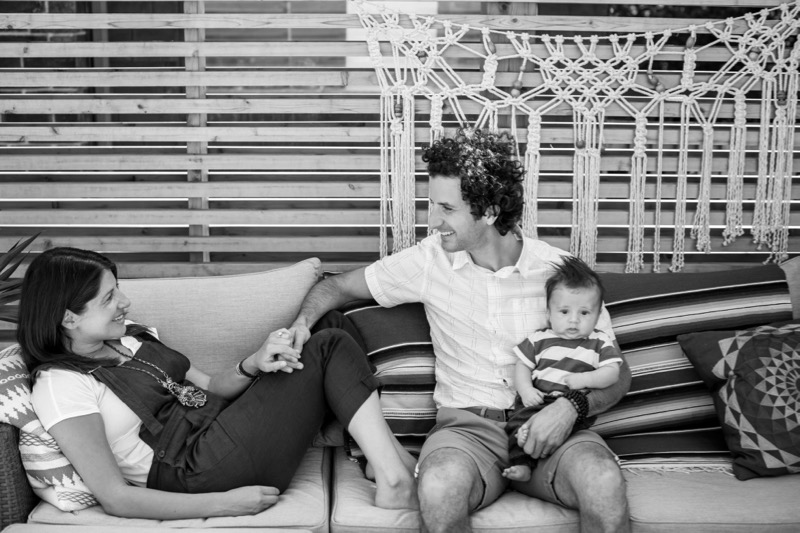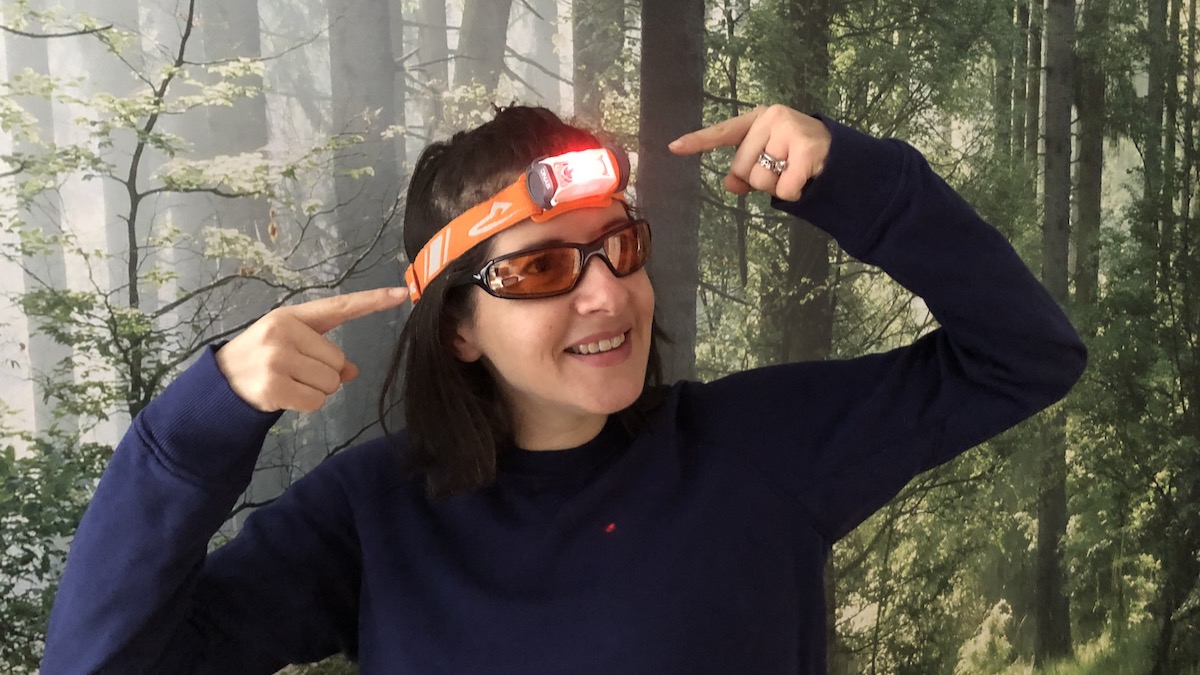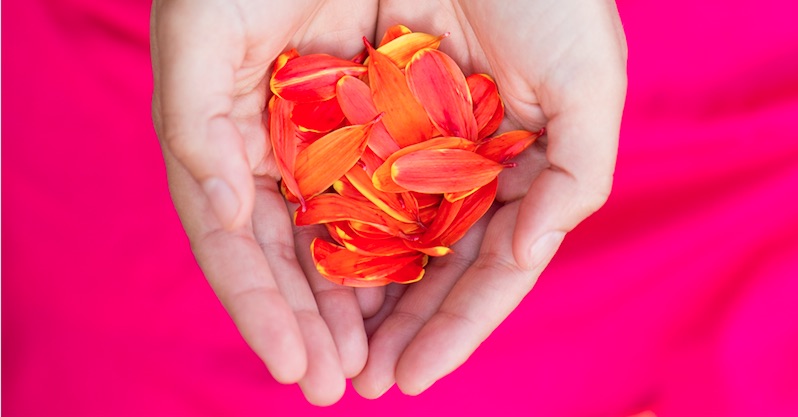10 Ways to Get Better Sleep
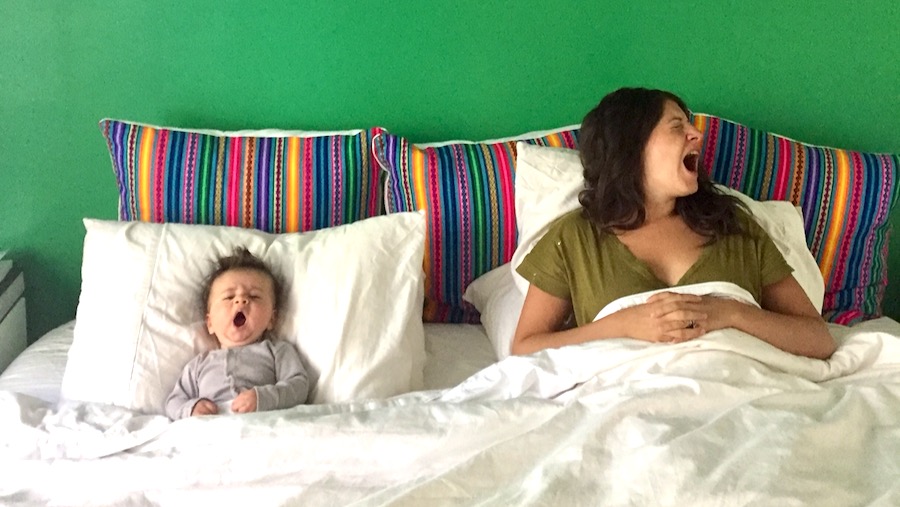
Have you ever had a problem falling asleep? You know the annoying drill: staring at the ceiling, tossing from side to side, glancing at your alarm clock as the hours tick away without the relief of sweet, sweet slumber. Why is sleep, something built into our human biology to help us heal, repair, and function, becoming increasingly difficult?
All you have to do is lie down, relax into stillness, and close your eyes. I think it’s the ‘relax into stillness’ bit that we have trouble with. With all the bright lights, stimulating foods, evening news, and the glowing screens of our phones, we find it challenging to ease into a resting state. We expect that when the clock reaches that magic time, our brains will just shut down and allow us to gently glide into sleep.
Of course, we are living in unprecedented times at the moment. We are tired and yet we still have trouble sleeping. From an evolutionary standpoint, we are actually hardwired for sleeplessness in times of crisis. It makes sense: if a large, dangerous animal was an imminent threat, our ancestors needed to be alert at all hours.
But we need to sleep. Even before the current pandemic swept the world, exhaustion was an epidemic. We used coffee or sugar as a main fuel source, buzzed on adrenaline all day, then crashed at the end of it. When it comes to actually going to sleep, we were left blinking, buzzing, tossing and turning.
Why Is Sleep Important?

Lack of sleep is more than just a nightly annoyance – it can seriously affect both our short-term and long-term health. Sleep is a time when our bodies relax, repair and regenerate. If that isn’t occurring, we are susceptible to a wide array of health issues including weight gain, Type 2 diabetes, cardiovascular disease and stroke, immune system weakness, and mental health, cognition and memory problems.
As if we needed more worries to keep us up at night?
Sleep and The Immune System
Sleep is vital to immune system function and keeping inflammation in check, and this is something we need to stay healthy and resilient. When we sleep, our immune system releases cytokines that help protect, regulate and bolster our immunity. Sleep also strengthens our ‘immunological memory’ – our ability to recognize, adapt to and remember intruders we’ve seen before. Sleep deprivation, on the other hand, dampens immune system function and raises our risk of developing infectious diseases. While scientists have not yet done studies on the link between sleep and COVID-19, previous research notes that sleep loss increases our risk of getting the common cold, flus, and pneumonia.
What’s more, sleep loss increases our production of inflammatory compounds that can injure our tissues and weaken our immunity. Excessive inflammatory compounds, also referred to as a ‘cytokine storm‘, are emerging as an important factor in developing COVID-19. My husband Josh breaks down what you need to know about COVID-19 and inflammation in this 4-minute video – it’s well worth your time.
10 Ways to get Better Sleep

Fortunately, there are many things we can do every day to cultivate good sleep habits and improve our sleep. What I want to stress here is that falling asleep isn’t a process that begins when your head finally hits the pillow – rather, it’s a culmination of every single choice you make throughout the day.
Set Your Biological Clock to the Rise and Fall of the Sun
Many of us are likely accustomed to getting up early to catch a train, get the kids to school or go to the gym before work. But few of us hit the sheets as soon as the sun goes down – and those who do are considered weird stick-in-the-muds. So why is correcting our circadian rhythm so crucial to a good night’s sleep? Well, our pineal gland, found in our brains, functions as a light metre that keeps us in harmony with our external environment. It secretes hormones that regulate our sleep/wake cycles. So if you’re scrolling on Instagram at 1:00 a.m., the light hitting your eyes signals your brain that it’s still daylight, instead of time to be sleeping. If you need to be on a screen in the evening, you can try blue-light blocking glasses to help protect our sleep/wake cycle.
Set Up Your Room for Optimal Sleep
Create a sleep environment that is conducive to sleeping. Number one is sleeping in darkness. When it’s completely dark, our pineal gland secretes a hormone called melatonin, which helps us fall asleep. So black out your window, close the bedroom door, unplug the nightlight, cover your alarm clock and wear a sleep mask. Other ways to create a good sleep environment is a cooler room temperature and comfortable bedding.
Remove Electronics Around Your Head
Don’t keep electronics like an alarm clock or your cell phone near your head – remove these items from your nightstand. Aside from the light these items radiate, they also emit electromagnetic frequencies (EMFs) that disrupt the nervous system and impair our ability to sleep. You can get the full scoop on EMFs here.
Avoid Stimulants Throughout The Day

Cut the caffeine, sugar, and alcohol from your diet. These stimulants impair our natural sleep processes. If you’re jonesing for a cup of joe, try a hot mug of Dandy blend (a herbal coffee alternative) or an herbal elixir, or munch on some low-GI treats if you’ve got a sweet tooth. If you need extra help ditching sugar, I’ve got this one-week no-sugar challenge with plenty of tips and recipes.
Turn Off All Electronics at Least an Hour Before Bed
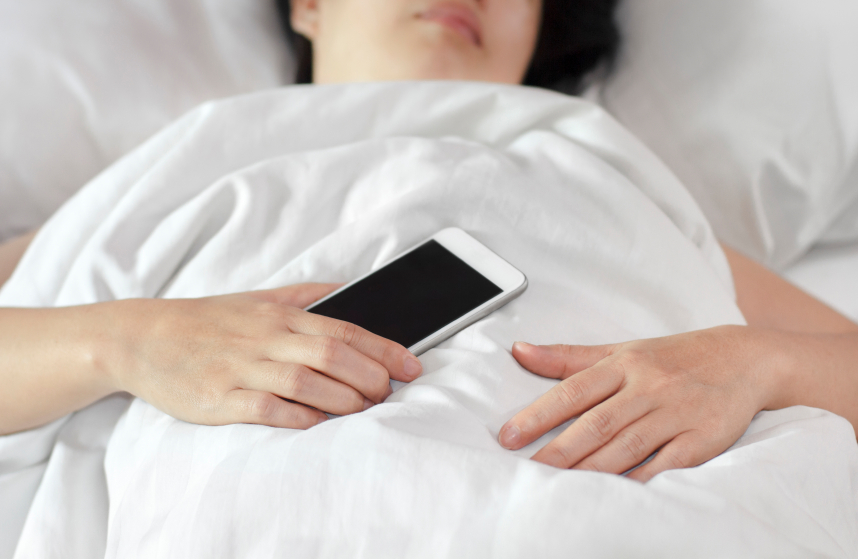
As I mentioned above, the light emitted from devices like computers, cell phones, tablets, etc. interferes with our circadian rhythm and tricks our brains into believing it’s still daytime. So turn them off at least an hour before bed and dim the lights in your home so you can begin the process of darkening your environment to promote optimal sleep. Also, I don’t recommend checking your email in the evening as this might get your brain going, whether it’s due to creativity about an exciting new project or aggravation from a work annoyance.
Eat Enough Protein
Protein is essential for healing and repair and some of us just aren’t getting enough of it. Our brains use a specific amino acid called tryptophan to make serotonin, which in turn makes melatonin for sleep. If we don’t eat enough protein, it’s hard to make the proper brain chemicals for sleep. Turkey is famous for its tryptophan content, but you can also eat dark leafy greens, sunflower seeds, sesame seeds, spirulina, and eggs.
Use Your Bedroom for Sleep and Sex Only
Have a Light Snack in the Evening
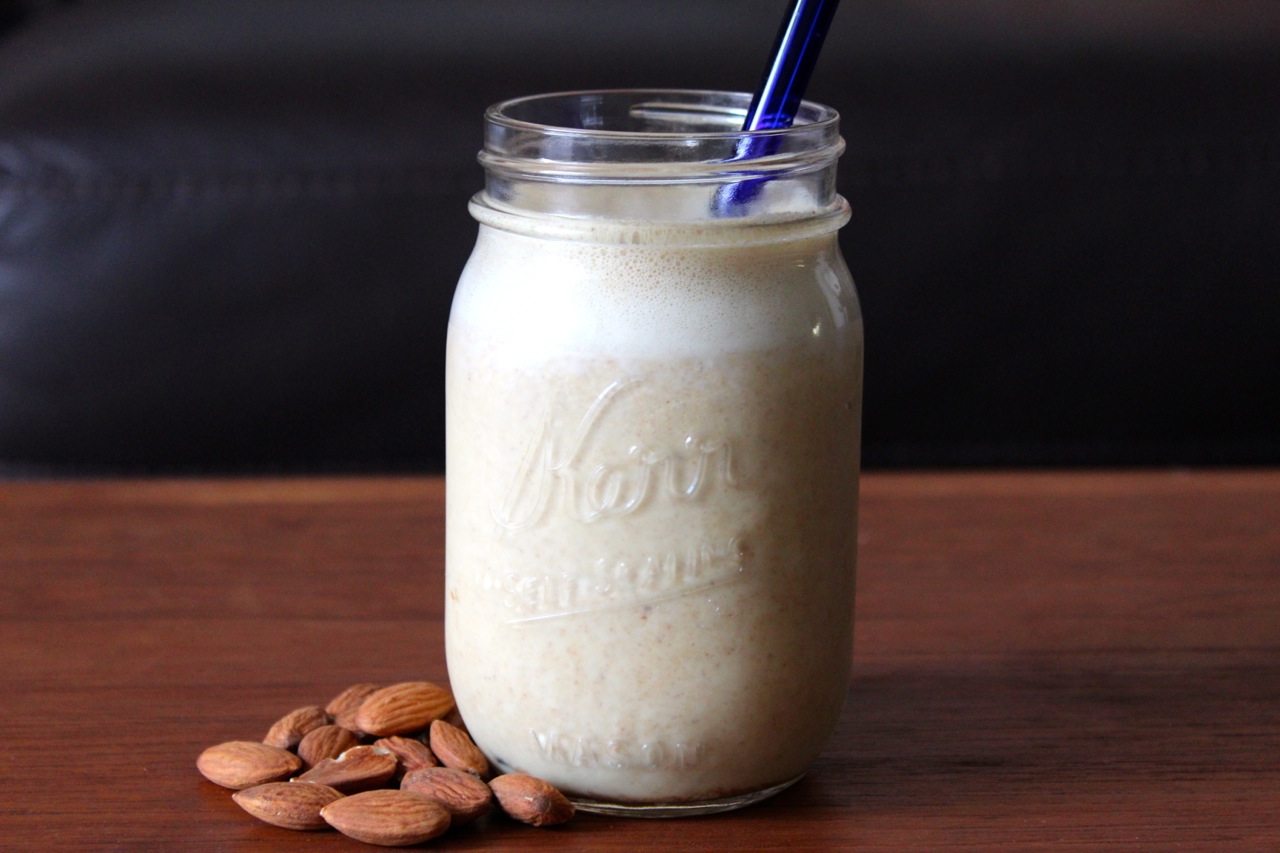
Our bodies and brains run on glucose. When blood glucose levels drop too low, we begin to produce stress hormones like adrenaline and cortisol to pump ourselves up. We don’t want this happening before bed. To prevent this, have a low glycemic snack an hour or two before bedtime, like steamed apples with coconut oil and cinnamon, a handful of nuts, a small portion of quinoa porridge, a glass of warm almond milk or a superfood-filled hot drink.
Implement A Relaxing Bedtime Ritual
Try listening to gentle music or practice deep breathing. If meditation is not your thing, you might like to take a bath with lavender, read a book, or drink a soothing cup of chamomile tea. You could add a few drops of lavender oil on your sleep mask (or a scarf), place a pillow under your back and prop your legs up against the wall while breathing deeply. The key is to find one activity (or a series of activities) that sets the stage for relaxation – so try a few things out and find what works best for you.
Reduce Stress
You knew this one was coming, didn’t you? The release of stress hormones makes us feel wired, anxious and very, very awake. All the best bedtime routines in the world won’t help you if you can’t shut off your brain and stop worrying about something that’s going to happen tomorrow, next week, or next month. I know that reducing stress and anxiety is easier said than done, but the first step is setting the intention to focus on working on your stress issues and then formulating an action plan that will make it happen.
My go-to response right now is focusing on what I can do in any given moment. Instead of getting lost in the fears about whether my family will get sick, I take a look around and assess what is actually happening. I remind myself that I’m safe and I’m doing everything I can nutritionally and otherwise to keep myself and my family healthy.
How to Fall Asleep When Your Mind is Spinning
It can be tricky to fall asleep – or get back to sleep in the middle of the night – if you are stuck in a hamster wheel in your mind. These are some things I’ve found helpful when my mind won’t stop churning.
- Choose a mantra and repeat it to yourself, either in your head or say it out loud.
- Follow your breath, observe it coming in and out, instead of following your thoughts.
- Do a body scan, starting at your feet and move up to your head. If you need some direction, a guided meditation can help you get started
- Count backwards from 100 by 3s – so 100, 97, 94, 91, 88, etc.
I highly recommend you try these tips out. When we are in a rush or feel like our days are packed too tight, we often forfeit sleep. Sleep needs to be a non-negotiable date in our lives, each and every day. Without enough of it, we will burn out, get sick more frequently and, ultimately, all the other best bits of our day will seem less enjoyable.
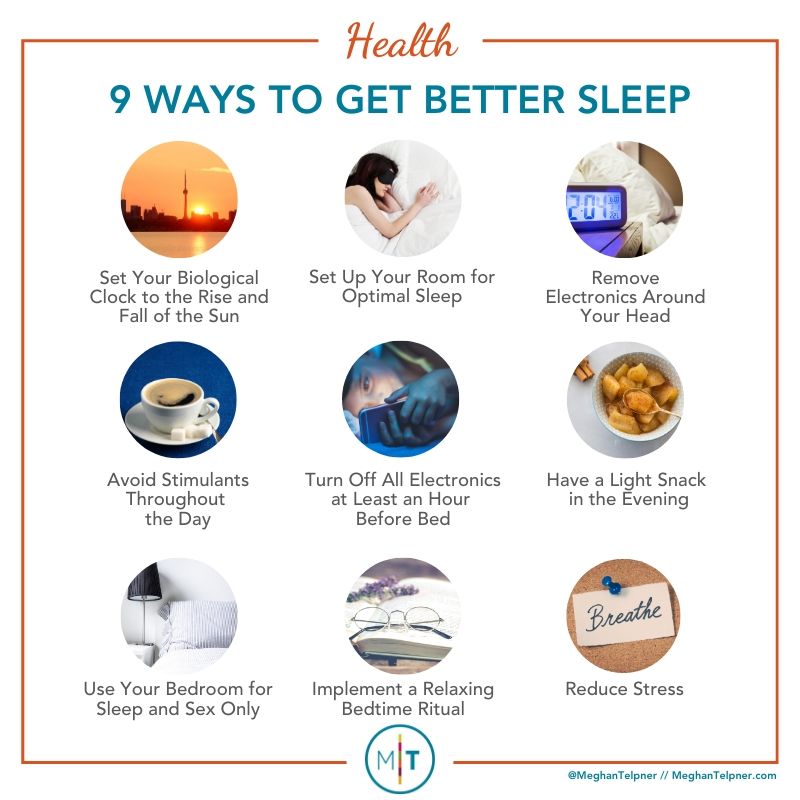
On My Mind Episode 15: 10 Ways to Get Better Sleep
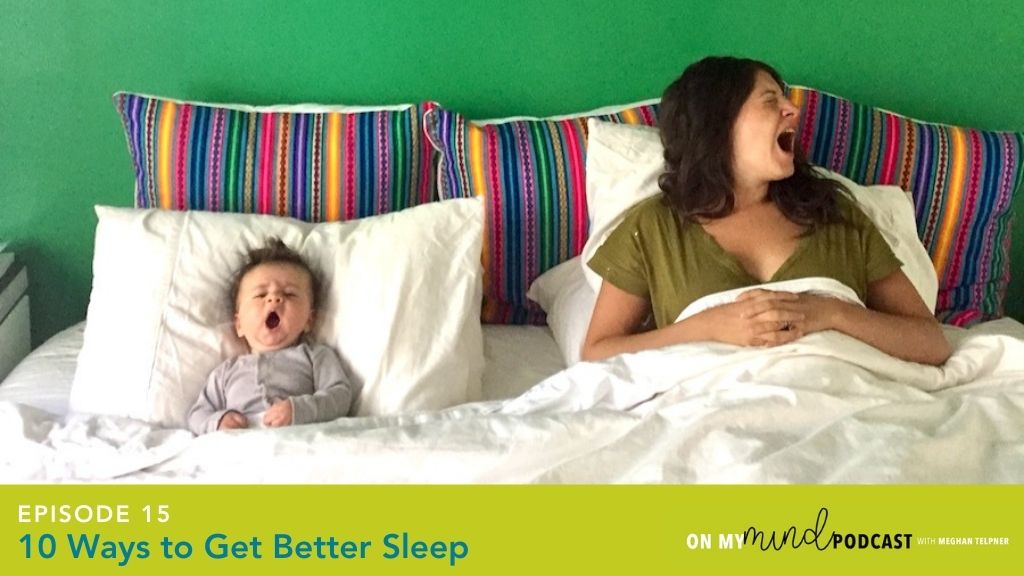
Subscribe today on your favourite podcast app and never miss an episode.
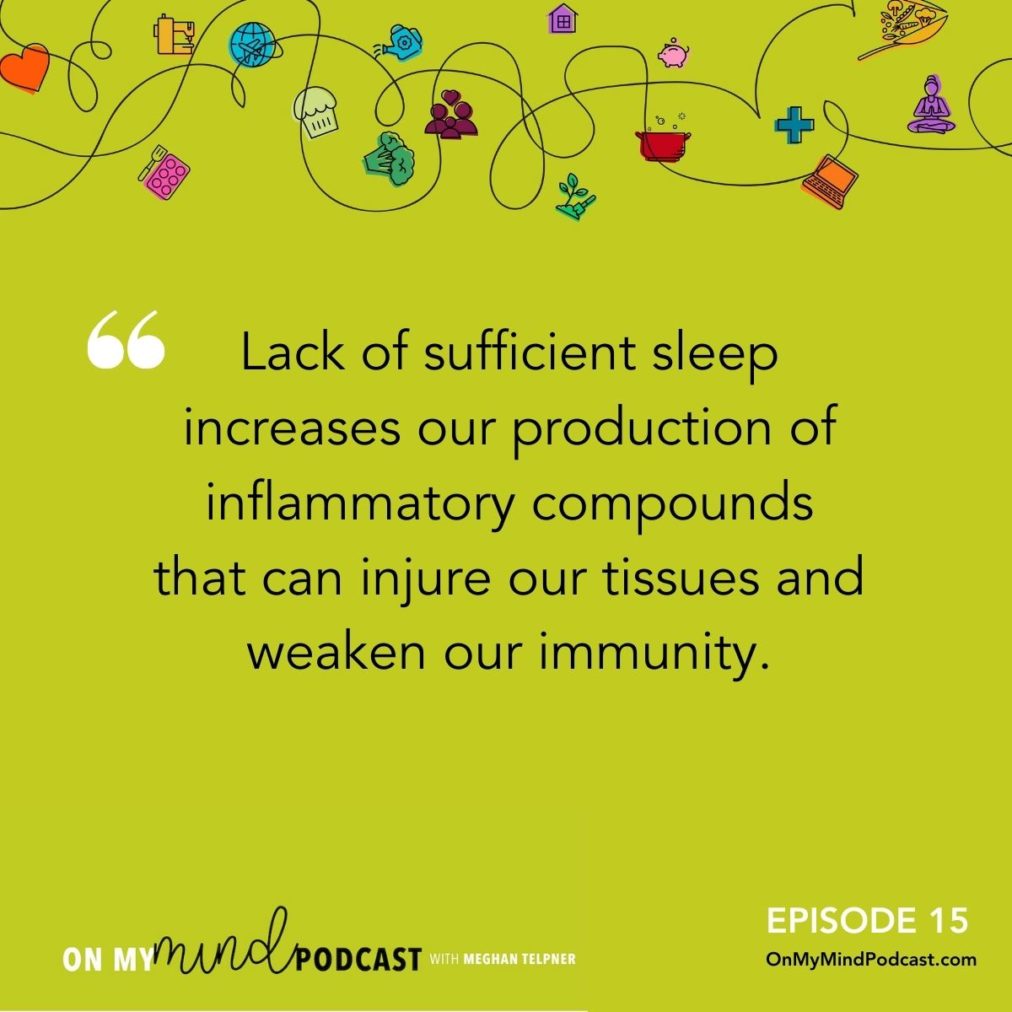
Free Resource Library
Enjoy more than 40 downloadable guides, recipes, and resources.















